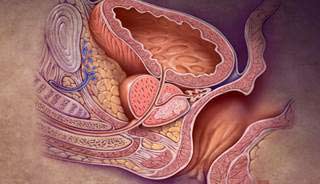
Prostate Cancer
The prostate is a small gland in men located below the bladder and surrounding the urethra. It’s regulated by the hormone testosterone. When an abnormal and malignant cellular growth, called a tumor, forms in the prostate, we are dealing with prostate cancer. This cancer can spread to other areas of the body.
According to the Urology Care Foundation, prostate cancer is the second leading cause of cancer-related death in men in the United States.
Types of Prostate Cancer
Most cases of prostate cancer are a type of cancer called adenocarcinoma, which grows in glandular tissue like the prostate gland. Prostate cancer is classified based on its growth rate and has two types of growth:
- Invasive (where the tumor grows rapidly): In these cases, the tumor can grow quickly and even spread to other areas of the body such as bones.
- Non-invasive (slower growth): In non-invasive prostate cancer, the tumor does not grow or grows very slowly over time.
Causes and Risk Factors of Prostate Cancer
There is no known cause of prostate cancer. Like other cancers, this cancer can be caused by various factors including family history or exposure to specific chemicals.
Whatever the stimulus, it leads to cellular mutations and uncontrolled cellular growth in the prostate.
Who Is at Greater Risk of Prostate Cancer?
While prostate cancer can affect any man, there are factors that can increase the risk of developing this disease:
- Increasing age
- Family history
- Specific ethnicity or race; for example, the risk of prostate cancer is higher in African American men.
- Obesity
- Genetic changes
Age and Prostate Cancer
As mentioned, age is a primary risk factor for prostate cancer. This disease often occurs in men over the age of 65. Generally, out of every 14 men aged 60 to 69, one will be diagnosed with this cancer.
Early Symptoms of Prostate Cancer
Some symptoms related to urinary tract may appear slightly earlier. It’s better to consult a doctor if you notice any abnormal signs during urination (pain, burning, difficulty, discoloration of urine, infection, etc.).
However, urinary symptoms are not always indicative of prostate cancer and in many cases are related to benign prostatic hyperplasia or prostatitis. Nevertheless, consulting a doctor for necessary checks and controls is essential in any case.
The risk of prostate cancer exists in all men, but if diagnosed early, the chances of treatment are higher. It’s important to pay more attention to prostate cancer with increasing age, and if you experience related symptoms, promptly inform your doctor.
Source: healthline


